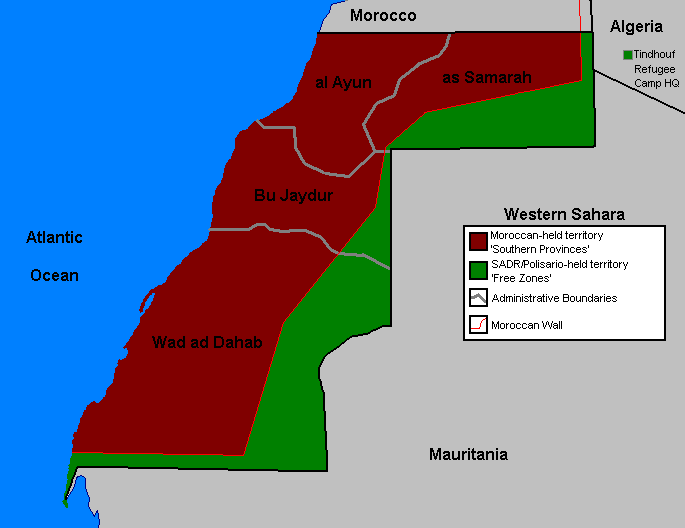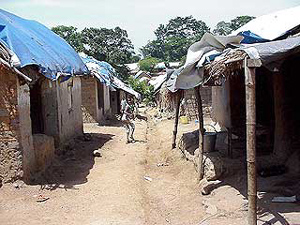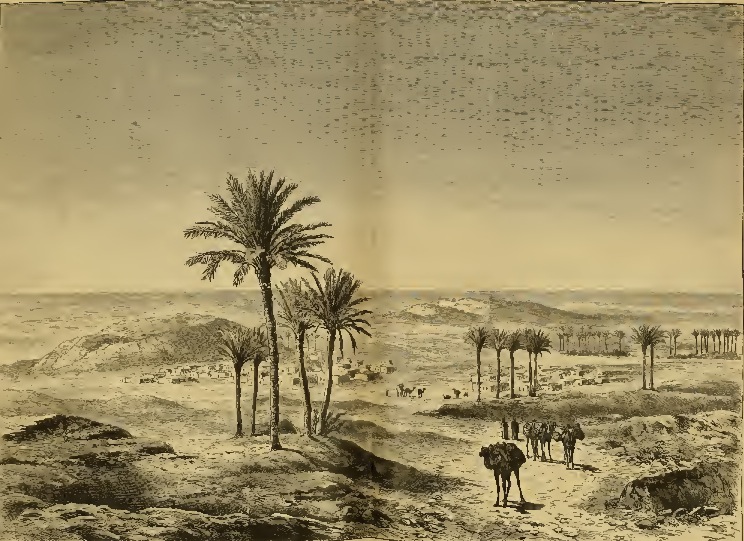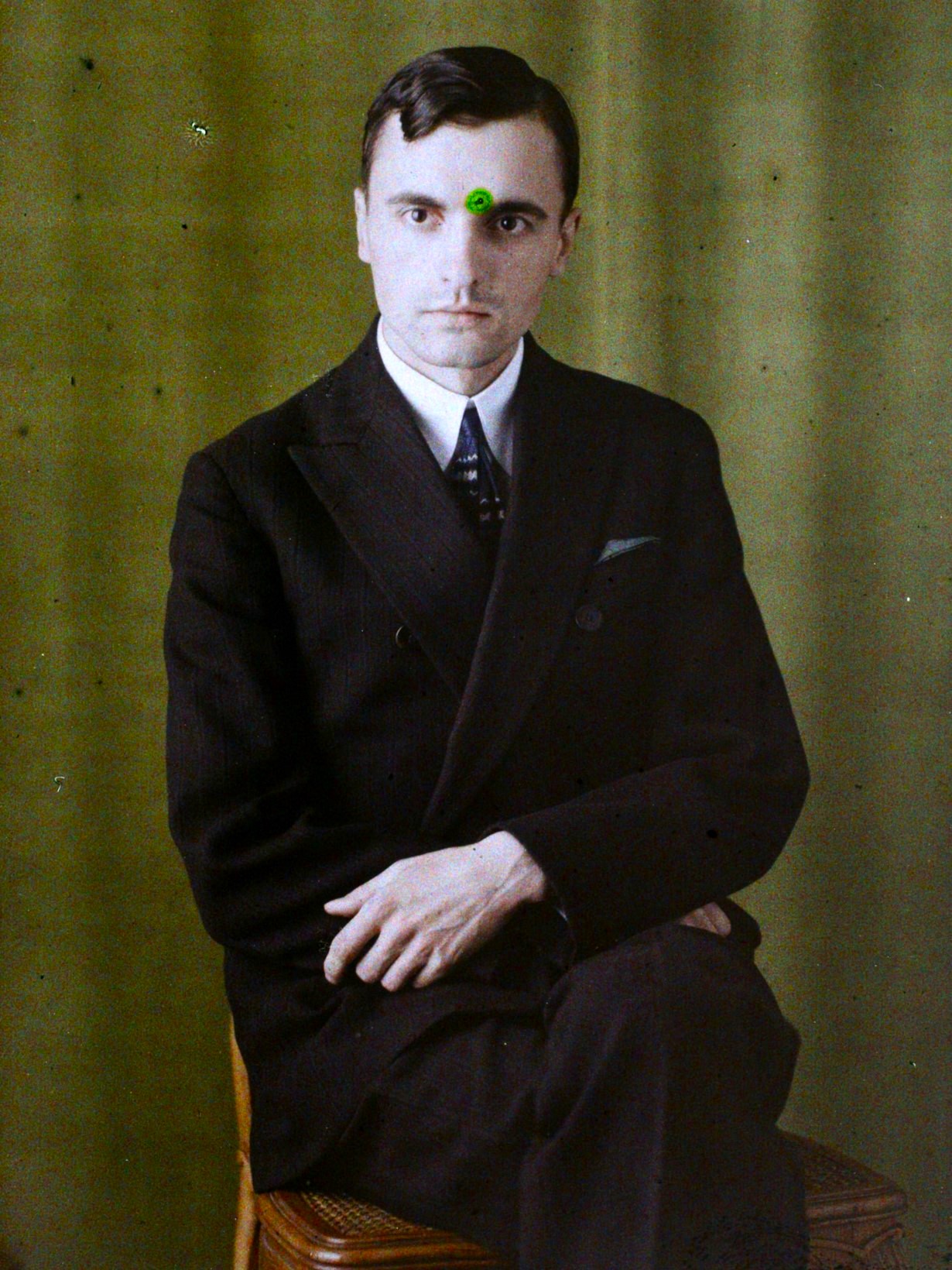|
Smara
Smāra (also romanized Semara, , ; ) is a city in the Moroccan-controlled part of Western Sahara, with a population of 57,035 recorded in the 2014 Moroccan census. It is served by Smara Airport and Smara bus station. History The largest city in its province, Smara, was founded in the Saguia el-Hamra as an oasis for travellers in 1869. In the center of the city the remains of a stone fortress can be found, the Zawiy Maalainin, which enclosed a mosque. The Maalainin lived there from 1830 until 1912. It was made a capital and religious center in 1902 by shaykh Ma al-'Aynayn, in what was then Spanish Sahara. The location of the city was intended to ensure its becoming a caravan trade hub in the sparsely populated Sahara desert. The enlargement of Smara was carried out by local Sahrawis as well as craftsmen sent by the sultan Hassan I of Morocco. In 1902, shaykh Ma al-'Aynayn moved to Smara and declared it his holy capital. Among other things, he created an important Islamic lib ... [...More Info...] [...Related Items...] OR: [Wikipedia] [Google] [Baidu] |
Polisario Front
The Popular Front for the Liberation of Saguia el-Hamra and Río de Oro (Spanish language, Spanish: ; ), better known by its acronym Polisario Front, is a Sahrawi nationalism, Sahrawi nationalist liberation movement seeking to end the occupation of Western Sahara through the means of self-determination and Wars of national liberation, armed resistance. Tracing its origin to a Sahrawi nationalist organization known as the Movement for the Liberation of Saguia el Hamra and Wadi el Dhahab, the Polisario Front was formally constituted in 1973 with the intention of launching an armed struggle against the Spanish Sahara, Spanish occupation which lasted until 1975, when the Spanish decided to allow Mauritania and Morocco to partition and occupy the territory. The Polisario Front proclaimed the Sahrawi Arab Democratic Republic (SADR) on 27 February 1976, and Western Sahara War, waged a war to drive out the two armies. It forced Mauritania to relinquish its claim over Western Sahara in ... [...More Info...] [...Related Items...] OR: [Wikipedia] [Google] [Baidu] |
United Nations List Of Non-self-governing Territories
Chapter XI of the United Nations Charter defines a non-self-governing territory (NSGT) as a territory "whose people have not yet attained a full measure of self-government". Chapter XI of the UN Charter also includes a "Declaration on Non-Self-Governing Territories" that the interests of the occupants of dependent territory, dependent territories are paramount and requires member states of the United Nations in control of such territories to submit annual information reports concerning the development of those territories. Since 1946, the UNGA has maintained a list of non-self governing territories under member states' control. Since its inception, dozens of territories have been removed from the list, typically when they attained independence or internal self-government, while other territories have been added as new administering countries joined the United Nations or the United Nations General Assembly, UN General Assembly (UNGA) reassessed their status. Since 1961 the lis ... [...More Info...] [...Related Items...] OR: [Wikipedia] [Google] [Baidu] |
Imam
Imam (; , '; : , ') is an Islamic leadership position. For Sunni Islam, Sunni Muslims, Imam is most commonly used as the title of a prayer leader of a mosque. In this context, imams may lead Salah, Islamic prayers, serve as community leaders, and provide religious guidance. Thus for Sunnis, anyone can study the basic Islamic teachings and become an imam. For most Shia Islam, Shia Muslims, the Imams are absolute infallible leaders of the Islamic community after the Prophet. Shias consider the term to be only applicable to the members and descendants of the ''Ahl al-Bayt'', the family of the Islamic prophet Muhammad in Islam, Muhammad. In Twelver Shia, Twelver Shi'ism there are 14 The Fourteen Infallible, infallibles, 12 of which are Imams, the final being Muhammad al-Mahdi, Imam Mahdi who will return at the end of times. The title was also used by the Zaydism, Zaidi Shia Imams of Yemen, who eventually founded the Mutawakkilite Kingdom of Yemen (1918–1970). Sunni imams Sunni ... [...More Info...] [...Related Items...] OR: [Wikipedia] [Google] [Baidu] |
Refugee Camp
A refugee camp is a temporary Human settlement, settlement built to receive refugees and people in refugee-like situations. Refugee camps usually accommodate displaced people who have fled their home country, but camps are also made for internally displaced people. Usually, refugees seek Right of asylum, asylum after they have escaped war in their home countries, but some camps also house environmental migrant, environmental and economic migrants. Camps with over a hundred thousand people are common, but as of 2012, the average-sized camp housed around 11,400. They are usually built and run by a government, the United Nations, international organizations (such as the International Committee of the Red Cross), or non-governmental organization. Unofficial refugee camps, such as Idomeni in Greece or the Calais jungle in France, are where refugees are largely left without the support of governments or international organizations. Refugee camps generally develop in an impromptu ... [...More Info...] [...Related Items...] OR: [Wikipedia] [Google] [Baidu] |
Algeria
Algeria, officially the People's Democratic Republic of Algeria, is a country in the Maghreb region of North Africa. It is bordered to Algeria–Tunisia border, the northeast by Tunisia; to Algeria–Libya border, the east by Libya; to Algeria–Niger border, the southeast by Niger; to Algeria–Western Sahara border, the southwest by Mali, Mauritania, and Western Sahara; to Algeria–Morocco border, the west by Morocco; and to the north by the Mediterranean Sea. The capital and List of cities in Algeria, largest city is Algiers, located in the far north on the Mediterranean coast. Inhabited since prehistory, Algeria has been at the crossroads of numerous cultures and civilisations, including the Phoenicians, Numidians, Ancient Rome, Romans, Vandals, and Byzantine Greeks. Its modern identity is rooted in centuries of Arab migrations to the Maghreb, Arab Muslim migration waves since Muslim conquest of the Maghreb, the seventh century and the subsequent Arabization, Arabisation ... [...More Info...] [...Related Items...] OR: [Wikipedia] [Google] [Baidu] |
Tindouf
Tindouf () is the main town, and a Communes of Algeria, commune in Tindouf Province, Algeria, close to the Algeria–Mauritania border, Mauritanian, Algeria–Western Sahara border, Western Saharan and Algeria–Morocco border, Moroccan borders. The commune has a population of around 160,000, but the census and population estimates do not count the Sahrawi people, Sahrawi refugees, making the population as of the 2008 census 45,966, up from 25,266 in 1998, giving the town an annual population growth rate of 6.3%. The region is considered of strategic significance as it houses Military of Algeria, Algerian military bases and an Tindouf Airport, airport with regular flights to Algiers, as well as flights to other domestic destinations. The settlement of Garet Djebilet lies within the municipalities of Algeria, municipal territory of Tindouf near the border with Mauritania; the settlement has an iron mine and a defunct airport, and is approximately northwest of Âouinet Bel Egrâ. Sin ... [...More Info...] [...Related Items...] OR: [Wikipedia] [Google] [Baidu] |
Jean Vieuchange
Jean Joseph Marie Vieuchange (1906–2003) was a French adventurer and medical doctor, best known for preparing for publication the hand-written notebooks of his brother, Michel, describing his discovery of Smara in the Western Sahara in November 1930. Vieuchange was born in 1906 into a comfortable middle-class family in Nevers, France, the youngest of three children. His sister, Germaine, was born in 1901 and his brother, Michel, in 1904. In 1922, the family moved to Paris, where Vieuchange enrolled as a law student at the Sorbonne; finding law tedious he transferred to medicine three years later. During 1929 and 1930, he was involved in the planning his brother's journey to Smara and moved to Essaouira in Morocco in August 1930 with the intention of travelling with him. At the last moment, following advice from Caïd Haddou, a local tribal leader, the brothers decided that Vieuchange would stay behind ready to mount a rescue mission should Michel fall ill, be injured or be ta ... [...More Info...] [...Related Items...] OR: [Wikipedia] [Google] [Baidu] |
Dysentery
Dysentery ( , ), historically known as the bloody flux, is a type of gastroenteritis that results in bloody diarrhea. Other symptoms may include fever, abdominal pain, and a feeling of incomplete defecation. Complications may include dehydration. The cause of dysentery is usually the bacteria from genus '' Shigella'', in which case it is known as shigellosis, or the amoeba '' Entamoeba histolytica''; then it is called amoebiasis. Other causes may include certain chemicals, other bacteria, other protozoa, or parasitic worms. It may spread between people. Risk factors include contamination of food and water with feces due to poor sanitation. The underlying mechanism involves inflammation of the intestine, especially of the colon. Efforts to prevent dysentery include hand washing and food safety measures while traveling in countries of high risk. While the condition generally resolves on its own within a week, drinking sufficient fluids such as oral rehydration solutio ... [...More Info...] [...Related Items...] OR: [Wikipedia] [Google] [Baidu] |
Berbers
Berbers, or the Berber peoples, also known as Amazigh or Imazighen, are a diverse grouping of distinct ethnic groups indigenous to North Africa who predate the arrival of Arab migrations to the Maghreb, Arabs in the Maghreb. Their main connections are identified by their usage of Berber languages, most of them mutually unintelligible, which are part of the Afroasiatic languages, Afroasiatic language family. They are indigenous peoples, indigenous to the Maghreb region of North Africa, where they live in scattered communities across parts of Morocco, Algeria, Libya, and to a lesser extent Tunisia, Mauritania, northern Mali and northern Niger. Smaller Berber communities are also found in Burkina Faso and Egypt's Siwa Oasis. Descended from Stone Age tribes of North Africa, accounts of the Imazighen were first mentioned in Egyptian hieroglyphs, Ancient Egyptian writings. From about 2000 BC, Berber languages spread westward from the Nile, Nile Valley across the northern Sahara int ... [...More Info...] [...Related Items...] OR: [Wikipedia] [Google] [Baidu] |
Michel Vieuchange
Michel Vieuchange (26 August 1904, Nevers 30 November 1930, Agadir) was a French adventurer who was the first European to visit the abandoned ruins of the walled city of Smara, in the interior of the Sahara. On 10 September 1930, Vieuchange set off on his journey of discovery into a largely unexplored region of North Africa. He was unsure of the exact location of Smara, nor did he speak Arabic or Berber, the languages of the few nomads in the region. Through severe hardship he reached his goal and returned to civilization on 16 November at the Moroccan town of Tiznit, almost from Smara. Vieuchange died a few days later, weakened from dysentery. He maintained a journal of his adventure, which was published by his brother Jean Vieuchange in 1932 as ''Smara, chez les dissidents du Sud marocain et du Rio de Oro'' (English title: ''Smara: The Forbidden City''). In his early twenties, Vieuchange obtained a degree in literature and wrote a first (unpublished) novel ''Hipparète'' that ... [...More Info...] [...Related Items...] OR: [Wikipedia] [Google] [Baidu] |
Guelta Zemmur
Guelta Zemmur (or Guelta Zemour, Tamazight for "olive tree pool") is a small town or village in the Moroccan-administered part of the territory of Western Sahara. The town is based around a guelta or oasis, retaining rain water for long periods. It was a camp site for the Sahrawi nomads of the area for hundreds of years. It functioned as one of the most important military strongholds for the indigenous Polisario Front guerrilla after the retreat of Spain from what was then Spanish Sahara. As Morocco and Mauritania asserted control over the former Spanish colony from the north and south according to the Madrid Accords, Guelta Zemmur acted as a stopping-point for refugees en route to the Sahrawi refugee camps in Tindouf, Algeria. It was also noted for the Guelta Zemmur conference on November 28, 1975, on the heels of the Ain Ben Tili conference. A gathering of the formerly Spanish-backed Djema'a was held in the town (then under Polisario control), where it agreed to support ... [...More Info...] [...Related Items...] OR: [Wikipedia] [Google] [Baidu] |
Atar
Atar, Ahtra, Atash, Azar () or ''Dāštāɣni'',, s.v. ''agni-.'' is the Zoroastrian concept of holy fire, sometimes described in abstract terms as "burning and unburning fire" or "visible and invisible fire" (Mirza, 1987:389). It is considered to be the visible presence of Ahura Mazda and his Asha through the eponymous Yazata. The rituals for purifying a fire are performed 1,128 times a year. In the Avestan language, ''ātar'' is an attribute of sources of heat and light, of which the nominative singular form is ''ātarš'', source of Persian ''ātaš'' (fire). It was once thought to be etymologically related to the Avestan ''āθrauuan'' / ''aθaurun'' (Vedic '' atharvan''), a type of priest, but that is now considered unlikely (Boyce, 2002:16). The ultimate etymology of ''ātar'', previously unknown (Boyce, 2002:1), is now believed to be from the Indo-European *hxehxtr- 'fire'. This would make it a cognate to Latin '' ater'' (black) and to Albanian '' vatër'' (definite ... [...More Info...] [...Related Items...] OR: [Wikipedia] [Google] [Baidu] |







